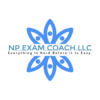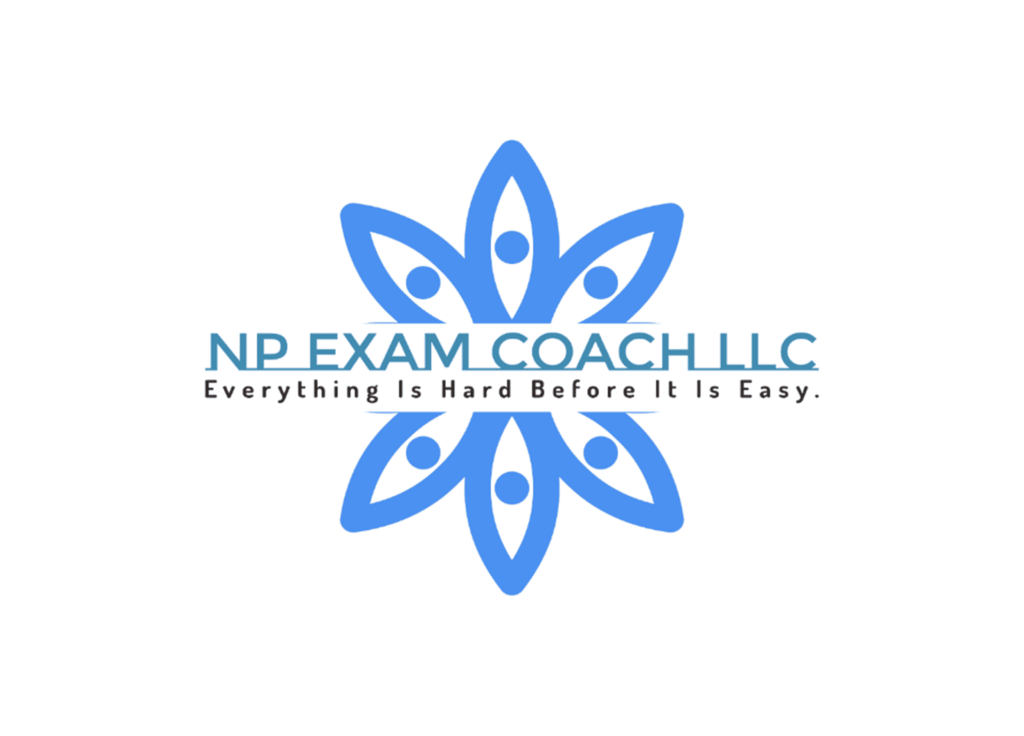Best Way to Study for PMHNP Exam:
The Best Way to Study for PMHNP Exam is through methodical review and practical application. Creating a structured study plan that includes review materials and practice questions is crucial.
Preparing for the Psychiatric-Mental Health Nurse Practitioner (PMHNP) examination requires a strategic approach to cover extensive material effectively. A solid study plan prioritises core content areas, integrates review courses, and involves completing practice tests to identify weak points. This deliberate method reinforces knowledge and hone critical-thinking skills necessary for the exam.
By adhering to a personalised study schedule, candidates can ensure comprehensive coverage of the topics and improve their chances of passing the PMHNP exam. Consistent study sessions, coupled with regular assessments of progress, are essential for mastering the exam content and achieving certification.
Starting Your Pmhnp Exam Journey
Initial Assessment Of Your Knowledge
Understanding your starting point is critical. A diagnostic test will gauge your current knowledge level. It helps identify strong areas and those needing improvement. Highlight the latter for extra attention during your study sessions.Creating A Study Timeline
Organizing your study time maximizes productivity. Begin by setting your exam date as your key deadline. Work backward to establish a realistic timetable. Use the points below to guide your timeline creation:- Divide the syllabus into manageable parts.
- Allocate study hours weekly, ensuring a consistent routine.
- Include buffer periods for revisiting complex topics.
- Set achievable goals for each study phase.
Selecting Reliable Study Resources
Finding trustworthy study material is key to passing the PMHNP exam. The right resources ensure comprehensive coverage of exam content. Look for up-to-date and acclaimed sources. These often come recommended by experts and successful test-takers.
Recommended Textbooks And Guides
A selection of textbooks and guides is crucial for in-depth study. These should cover all exam topics prescribed by the certification body. The following table lists resources that have helped many candidates succeed.
| Textbook/Guide Title | Author | Publisher |
|---|---|---|
| Barkley’s PMHNP Review | Barkley | Barkley Health Care |
| PMHNP-BC Pocket Prep | Pocket Prep, Inc. | Pocket Prep |
| Psychiatric-Mental Health Nurse Practitioner Review and Resource Manual | Kathryn Johnson | American Nurses Association |
Choose guides that include practice questions and detailed explanations. They help with concept understanding and application.
Utilizing Online Platforms And Courses
Quality online resources can complement traditional studying. Interactive platforms offer flexibility and diverse educational tools. Find courses that feature video lessons, live webinars, and interactive quizzes.
- Online Universities: Offer structured courses with expert faculty.
- Study Apps: Provide on-the-go prep with practice questions.
- Web Forums: Allow discussions with peers and educators.
Look for platforms with positive reviews and proven track records. They should focus on the latest PMHNP exam format.
Active Learning Strategies
Incorporating Flashcards And Visual Aids
Flashcards are a powerful tool for memorization. They promote active recall, which is when you try to remember a concept from scratch rather than just recognizing it. Use both sides of the flashcard: one for the question or term, and the other for the answer or explanation.- Create a set of flashcards for each topic.
- Mix them up to challenge your memory.
- Use images and charts for complex topics.
| Tool | Usage | Benefits |
|---|---|---|
| Flashcards | Active Recall Practice | Enhances Memory |
| Mind Maps | Visual Organization | Improves Understanding |
| Infographics | Summarizing Information | Aids Retention |
Engaging In Study Groups And Discussions
Study groups can take your understanding to the next level. They allow you to hear different perspectives and explain concepts to others, further solidifying your knowledge.- Form a group with peers who are also preparing.
- Assign topics to each member to teach the group.
- Discussions can uncover new insights or clarify doubts.
Techniques For Effective Time Management
Prioritizing Exam Topics
Not all exam topics carry the same weight.- Review the exam blueprint from the certification board.
- Mark the most important sections.
- Allocate more time to complex topics.
Balancing Study Sessions With Breaks
Long hours of studying can lead to burnout.- Plan sessions of 25-30 minutes.
- Take short 5-minute breaks after each session.
- Use a timer to stay on track.
| Study Time | Break Time |
|---|---|
| 25 min | 5 min |
| 50 min | 10 min |
Practical Application With Case Studies
Learning From Real-life Scenarios
Real-world examples bring textbooks to life. They make complex concepts clearer and more memorable. By analyzing case studies, you uncover layers of psychiatric conditions. You learn the nuances of patient care.- Study different case outcomes.
- Connect theory with practice.
- Remember treatment strategies better.
Self-testing With Practice Questions
Practice questions simulate the actual PMHNP exam experience. Crafting responses to varied questions boosts confidence. It also reveals areas that need more study.- Use practice tests to assess knowledge.
- Time yourself to prepare for the pressure of the real test.
- Review explanations for all answers.

Credit: www.examedge.com
Memorization Vs. Conceptual Understanding
Evaluating The Need For Rote Learning
Memorization is key for certain exam elements. It’s useful for pharmacology terms, diagnostic criteria, and clinical guidelines. Rote learning is best when dealing with facts that won’t change.- Bolden key terms for quick recall.
- Use flashcards to drill definitions.
- Create mnemonics for lists and sequences.
Developing A Deeper Comprehension Of Principles
Contrary to memorization, understanding concepts helps in applying knowledge effectively. It’s beneficial for clinical reasoning and decision-making. This approach encourages a robust grasp of the subject matter.- Engage with study groups to discuss topics.
- Relate new information to what you already know.
- Practice with case studies to apply principles.
Adapting To Your Learning Style
Identifying What Works For You
Discovering your learning style is crucial. Are you a visual learner? Maybe you prefer hearing content out loud. Some learners excel by doing hands-on activities. Others learn best by reading and writing. Reflect on past successes to pinpoint your style. This insight will guide your study choices for the PMHNP exam.Customizing Study Methods
With your learning style in mind, craft a study plan that plays to your strengths. Below are tips tailored to various learning preferences:- Visual Learners: Utilize charts, diagrams, and color-coded notes.
- Auditory Learners: Listen to lectures and discuss topics with peers.
- Kinesthetic Learners: Engage in hands-on activities, like role-playing.
- Reading/Writing Learners: Create summaries and use flashcards.
| Learning Style | Study Techniques |
|---|---|
| Visual | Mind maps, imagery |
| Auditory | Recordings, group discussions |
| Kinesthetic | Lab work, case simulations |
| Reading/Writing | Notes, lists, journals |
Handling Anxiety And Exam Pressure
Practicing Mindfulness And Relaxation Techniques
Mindfulness involves staying present and fully engaging with the here and now. By incorporating mindfulness exercises into your daily routine, you can reduce stress levels significantly. Here are some techniques to consider:- Deep Breathing: Sit in a comfortable position and take slow, deep breaths to help clear your mind.
- Guided Imagery: Listen to calming audio that encourages you to visualize peaceful scenes.
- Meditation: Dedicate a few minutes each day to silence and focus, reducing anxiety.
- Yoga: Join a class or find online tutorials to help maintain both physical and mental health.
Pre-exam Strategies To Boost Confidence
Increasing your confidence before the exam is key. Follow these strategies to feel prepared and assured:- Organize Study Materials: Keep your notes and revision tools in order, ensuring easy access whenever you need them.
- Take Practice Tests: Familiarize yourself with the exam format and question styles by completing practice exams.
- Setup Study Plan: Create a realistic schedule that covers all the topics and stick to it.
- Seek Support: Connect with study groups or find a study buddy to share insights and boost morale.
Utilizing Mock Exams For Self-evaluation
Simulating The Testing Environment
Mock exams allow you to simulate the actual testing environment. This can reduce anxiety and enhance your confidence. Create a quiet space to mimic the exam room. Do this during study sessions. Timing yourself as if in the real exam is key. Stick to the allotted time for each section. This strategy will train you to manage the exam pace effectively.Analyzing Performance And Identifying Weaknesses
After completing each mock exam, spend time analyzing your performance. Identifying areas where you excel and recognizing weaknesses is paramount. This approach steers your study plan towards topics needing more attention. Use a structured format to review your mock exam results. Note specifics about any recurring mistakes. This data helps you to adjust your studies and strategies appropriately. Remember, the goal is not just to answer questions correctly. It is also to understand the rationale behind each answer. This deepens your grasp of the content. Use mock exams to enhance your knowledge base. These exams should be a part of your regular study routine.
Credit: www.examedge.com
Last-minute Tips Before The Big Day
The PMHNP exam is approaching, and it’s crunch time! Even if you’ve studied thoroughly, the last few days before your test are crucial. Here’s a strategic approach with last-minute tips to ensure you maximize your performance on the big day. Let’s focus on reviewing key points and ensuring your readiness, both mentally and physically.
Reviewing Key Points
Go through your notes and flashcards one last time. Highlight the core concepts that are high-yield for the PMHNP exam. Below is a quick refresher technique to help you:
- Create a cheat sheet: Jot down key points that you find tough.
- Focus on tables and diagrams: They often summarize complex information.
- Practice with quizzes: Use online resources for last-minute tests.
Remember, the goal is to refresh, not overwhelm. Sleep is vital, so wrap up your revision early.
Ensuring Mental And Physical Readiness
Your body and mind need to be in top shape. Don’t underestimate the importance of good health in exam success.
| Physical Readiness | Mental Readiness |
|---|---|
|
|
Gather your ID, admission ticket, and supplies the day before. Double-check the exam venue and time. Plan to arrive early to avoid any last-minute stress.
Frequently Asked Questions On Best Way To Study For Pmhnp Exam
What Is The Pmhnp Exam?
The PMHNP exam is a certification test for psychiatric-mental health nurse practitioners to validate their clinical knowledge and skills.
How Long To Prepare For Pmhnp Test?
Preparation time varies, but most candidates spend 3-6 months studying to ensure comprehensive coverage of the exam material.
Which Study Materials Best For Pmhnp?
Recommended materials include the ANCC’s review book, practice tests, and supplemental resources from reputable nurse practitioner educational providers.
Are Practice Tests Useful For Pmhnp Exam?
Absolutely, practice tests help identify knowledge gaps and familiarize candidates with the format and types of questions on the actual PMHNP exam.
What Topics Covered In Pmhnp Exam?
The PMHNP exam covers psychiatric disorders, therapeutic treatments, patient care, healthcare delivery systems, and professional practice, among other topics.
Is Pmhnp Exam Content Updated Regularly?
Yes, the PMHNP exam content is reviewed and updated periodically to reflect current best practices and advancements in mental health nursing.
Can Pmhnp Exam Be Retaken If Failed?
Candidates can retake the PMHNP exam after a 60-day waiting period, up to three times in a 12-month period.
How Does Pmhnp Exam Format Look Like?
The PMHNP exam is a computer-based test comprising 175 multiple-choice questions to be answered within a 4-hour time frame.
What’s The Passing Score For Pmhnp Exam?
The passing score for the PMHNP exam is determined using a criterion-referenced method, meaning it varies based on the difficulty of the specific exam form.
Are There Any Official Pmhnp Exam Prep Courses?
Yes, both the ANCC and various educational institutions offer official prep courses designed to help candidates review and understand the material for the PMHNP exam.
Conclusion
Preparing for the PMHNP exam requires strategic study habits and the right resources. Embrace effective techniques, like active recall and spaced repetition. Remain consistent and seek support when needed. Your hard work and dedication will pave the way to success, ensuring you’re well-equipped to ace the test and advance your nursing career.


